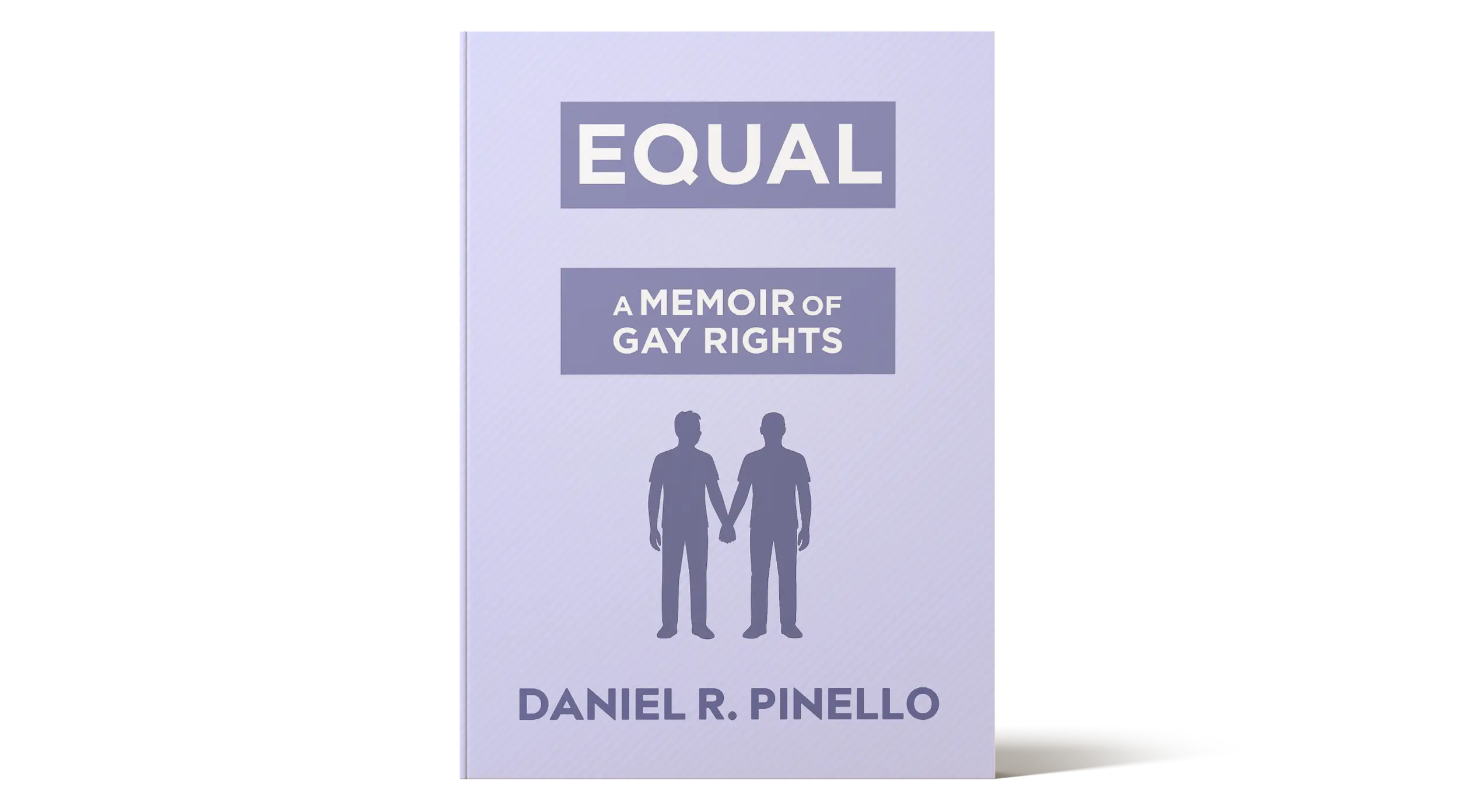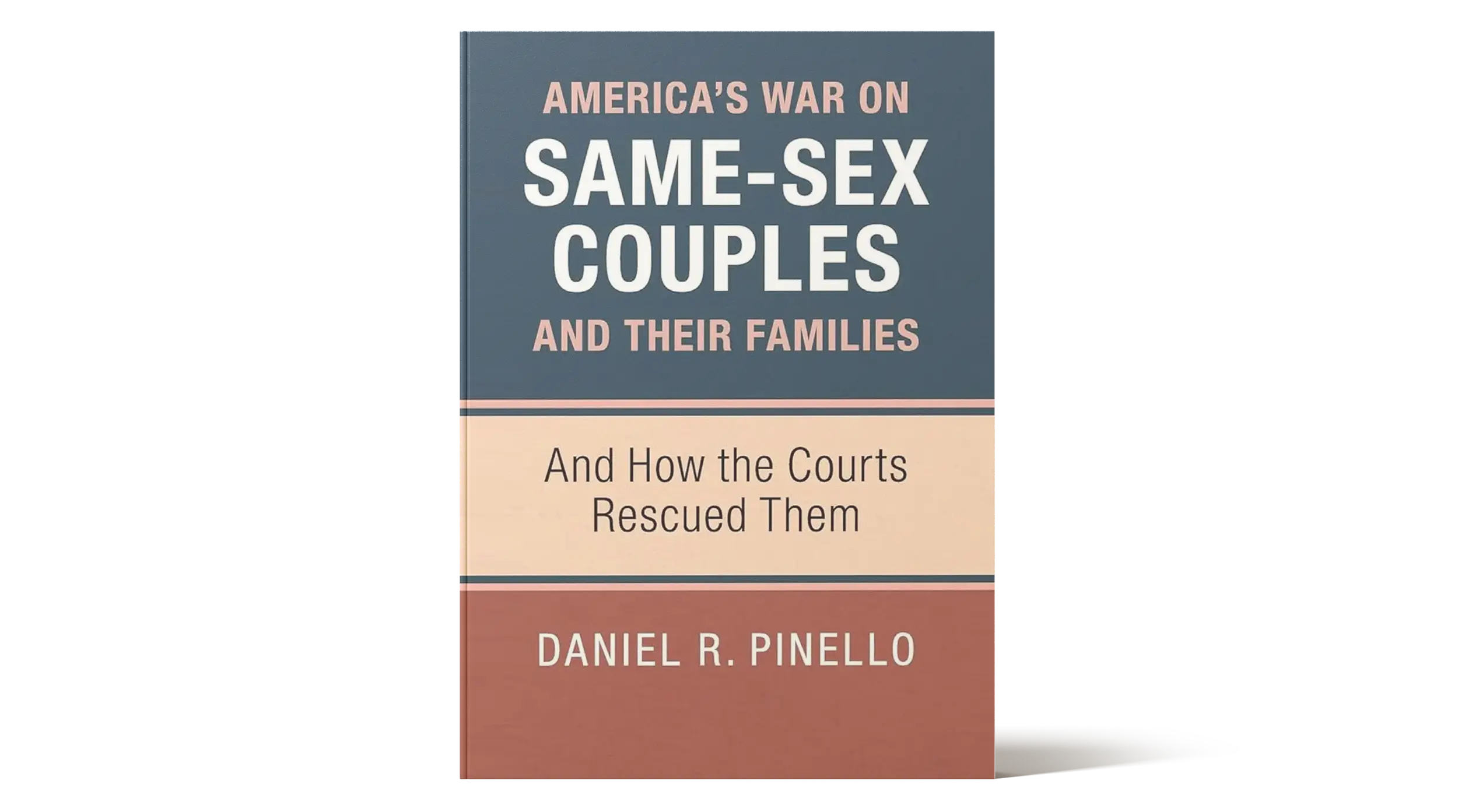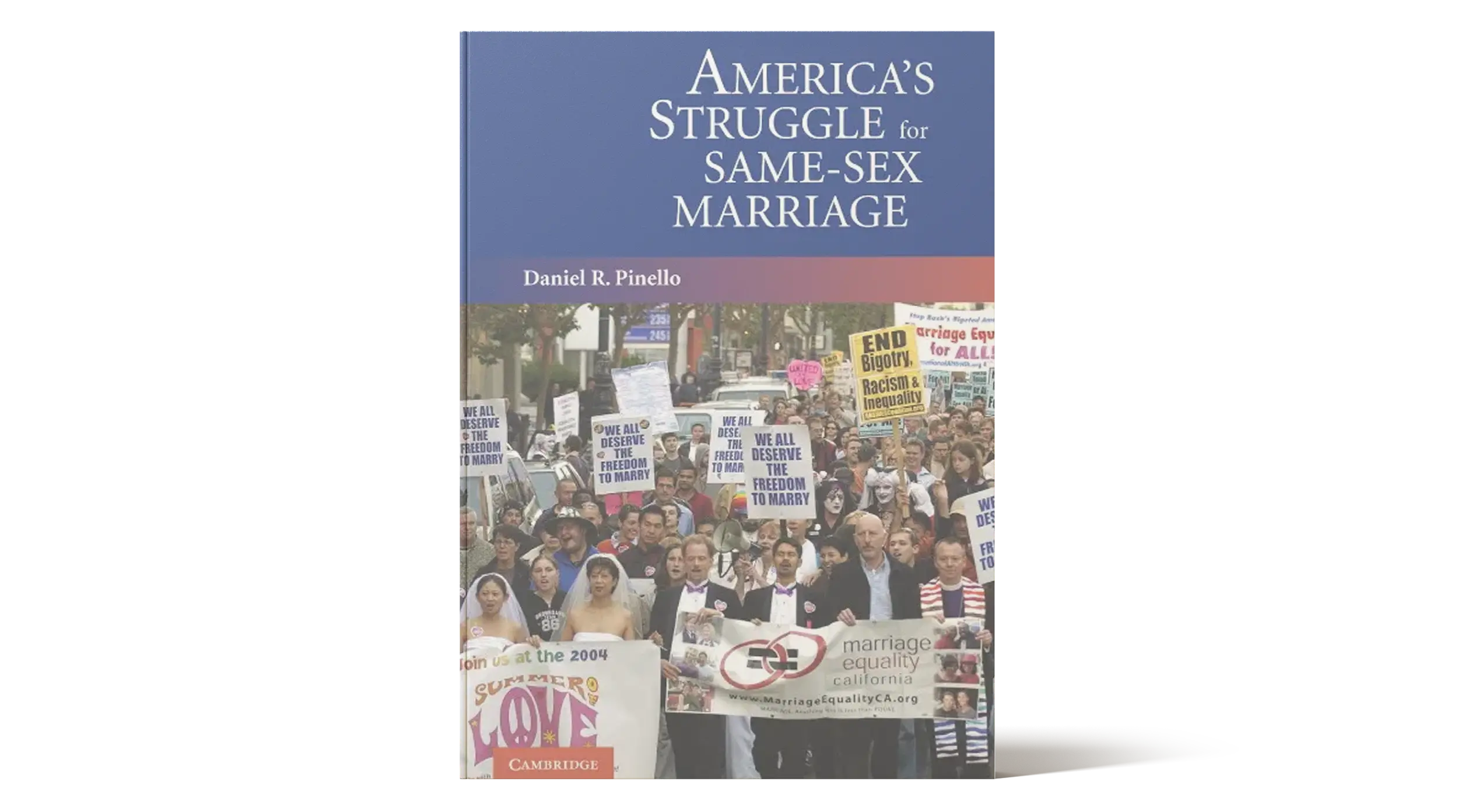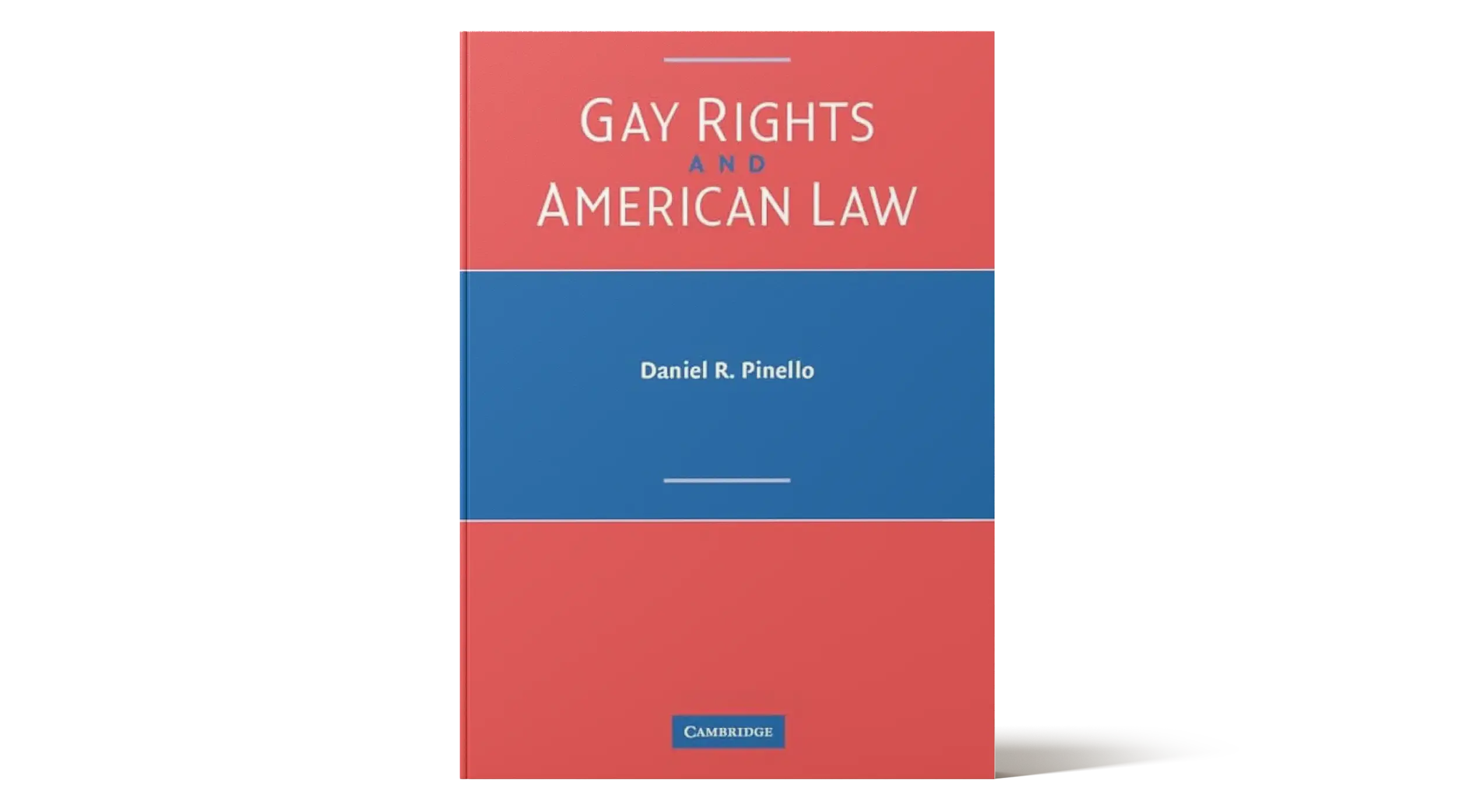Statement of Daniel R. Pinello
E-mailed to Political Scientists
in October 2007
I write to request your support of a boycott of the American Political Science Association’s 2012 Annual Meeting, currently slated for New Orleans, Louisiana.
In 2004, 78 percent of Louisiana voters (including a majority in Orleans Parish) passed this amendment to their state constitution: “Marriage in the state of Louisiana shall consist only of the union of one man and one woman. No official or court of the state of Louisiana shall construe this constitution or any state law to require that marriage or the legal incidents thereof be conferred upon any member of a union other than the union of one man and one woman. A legal status identical or substantially similar to that of marriage for unmarried individuals shall not be valid or recognized. No official or court of the state of Louisiana shall recognize any marriage contracted in any other jurisdiction which is not the union of one man and one woman.”
This language both limits marriage to different-sex couples and denies to same-sex pairs all “legal incidents” of marriage that arise from civil unions, domestic partnerships, and other familial arrangements. In other words, as a matter of state constitutional law, coupled lesbians and gay men can be nothing other than legal strangers to one another in Louisiana.
In 2005, the APSA’s Committee on the Status of Lesbians, Gays, Bisexuals, and the Transgendered in the Profession (on which I served from 2004 to 2007) adopted a resolution calling for the Association not to hold conventions in states with constitutional prohibitions of same-sex marriage. That year, the APSA Council forwarded the LGBT Status Committee’s siting resolution to the newly formed Annual Meeting Review Committee for consideration.
This year, the Annual Meeting Review Committee reported that any change in the Association’s conference-siting policy was a matter solely for the Council to determine.
On August 31st, the Council rejected the Status Committee’s resolution.
The APSA’s choice to hold annual meetings in states with constitutional provisions like that of Louisiana impedes the ability of LGBT political scientists to participate in the Association and to progress in the profession.
For instance, the domestic partners and children of LGBT members travel with them to conventions. Lee, my own partner of 12 years, has gone with me to meetings in Chicago and San Francisco. Were I to be hospitalized or otherwise incapacitated while visiting New Orleans in 2012, I would want Lee to make medical and other decisions on my behalf, and vice versa. However, under the Louisiana amendment, we couldn’t do that for each other.
This example isn’t hypothetical. Lee has Type 1 diabetes, and I’ve had to take him to hospital emergency rooms because of his disease. I wouldn’t want to face the question from medical staff in Louisiana, “Are you a member of his family?” In short, the Association’s rejection of the Status Committee’s siting policy makes only heterosexual families uniformly welcome at annual meetings.
The APSA’s posture hits LGBT graduate students and junior faculty with particular force. In 2012, they face the Hobson’s choice of, on the one hand, subjecting themselves and their families to an overtly hostile legal environment while in New Orleans or, on the other hand, not attending the conference and missing its opportunities to interview for jobs and to present papers in order to advance careers.
What is more, the Association established a relevant precedent in the 1970s and ‘80s when it refused to hold conventions in states that hadn’t ratified the federal Equal Rights Amendment. That policy precluded meetings in Chicago, because Illinois never approved the ERA.
Hence, while the APSA was fully prepared a generation ago to battle gender discrimination, the organization isn’t willing today to combat sexual-orientation discrimination with similar resolve. Instead, by selecting New Orleans for an annual meeting, the Association condones the condemnation of same-sex couples to the legal purgatory that Louisiana, and New Orleans itself, authorized in 2004.
In truth, the APSA would never consider New Orleans if the Louisiana Constitution discriminated on the basis of ethnicity, gender, race, or religion as blatantly as it does with regard to sexual orientation. Our national professional organization of political scientists, thus, reinforces the sad reality that explicit governmental discrimination against LGBT Americans remains politically and socially acceptable.
The Status Committee’s resolution eliminates just Atlanta and New Orleans from the cities with convention facilities that have been sufficient in the past to accommodate the Association’s annual gatherings. Boston, Chicago, New York, Philadelphia, San Francisco, Toronto, and Washington are, and will remain, viable venues for conferences. Surely this list is adequate to suit the organization’s siting needs.
I have faith that the American Political Science Association has the capacity — and can summon the compassion — to ensure that all of its members are treated with dignity and respect at annual meetings. I hope that you share my belief.
Statement of Daniel R. Pinello
E-mailed to Political Scientists
in November 2007
The American Political Science Association recently elected a new cohort to its governing body. On that occasion, I write to request your lobbying the full Council to relocate the 2012 annual meeting away from New Orleans, and also to answer criticisms of the boycott call.
By far, the most frequent reproach to the embargo on the Crescent City stems from the heartfelt need to show solidarity with the Big Easy after the natural devastation and political debacle of Hurricane Katrina. As one person observed, “In deciding upon the New Orleans site, the APSA undoubtedly wanted to show its economic and moral support for a city that was ravaged by Katrina and its political fallout. Equity and discrimination were key concerns in the aftermath of Katrina, and justifiably so.”
In weighing this kindness claim, you should know that, at least six months before Katrina struck, the Association had selected the Crescent City for an annual meeting. Indeed, passing a conference-siting resolution in March 2005, the LGBT Status Committee was aware then that the APSA was considering a New Orleans venue. Thus, sympathy for disaster victims played no part in the choice of the Big Easy for a convention.
Every bit as important is the practical reality of the Association’s solidarity commitment: “Hold on, New Orleans! We’re coming to your rescue! Our help is on the way! Just give us five years to get down there.” If APSA members truly want to demonstrate meaningful affinity with the plight of the Crescent City, they should make financial contributions to its rebuilding effort now, and not just attend a conference there seven years after the hurricane.
My partner Lee’s brother-in-law Jeff is a clinical psychologist and was among the first American Red Cross volunteers permitted to enter New Orleans after Katrina’s landfall. Balancing the demands of his own patients back home in Schenectady, NY, Jeff donated full-time counseling services to hurricane victims by means of three two-week trips to the Big Easy staggered over several months. Now that is solidarity, while four days of convention-going over Labor Day Weekend in 2012 is symbolic support at best.
And why should such purely symbolic aid be borne on the backs of LGBT colleagues? They would face in New Orleans the real and enduring impact of the Pelican State’s overtly hostile legal environment.
My first teaching assignment out of graduate school was a three-year stint at the University of New Orleans. I lived in the French Quarter from 1988 to 1991 and have fond memories of the experience. The period was a joyous time for me in many ways. I harbor no ill will toward the Big Easy. Quite the contrary.
A second objection to the boycott call is this: “Would it be possible, when traveling with a gay partner to New Orleans, for you to take a notarized statement authorizing him to make medical decisions on your behalf?”
Yes, it’s possible. In fact, Lee and I have mutual health care proxies and hospital visitation authorizations, executed pursuant to New York law. But the 2004 amendment places an affirmative burden on same-sex couples. These pairs may never have a legally recognized relationship in the Pelican State. Accordingly, the Louisiana Constitution invalidates, by operation of law, all medical-care agreements between the members of same-sex pairs because these documents touch the “legal incidents” of marriage which the state constitution withholds from those couples.
Hence, unlike a heterosexual husband or wife who might fly to the Crescent City in order to attend to a spouse’s medical emergency there, Lee is legally disconnected from me in New Orleans. So no matter how well he and I might plan a trip to the Big Easy, there’s nothing we can do to overcome a constitutionally based denial of our relationship.
A third response to the call for an embargo addresses strategy: “A more productive plan of action would be for you to reach out to the citizens of New Orleans and engage them in a dialogue about inclusiveness. For example, rather than organizing a boycott, your organization could host a community forum at the APSA conference regarding Louisiana’s prohibition on same-sex marriage.”
I go to political science conventions to present papers, to listen to panels, to see former colleagues and other friends, and to interview job candidates when my department is recruiting. I don’t travel to APSA gatherings to educate host-city residents. In truth, the community-forum suggestion implies that, in order to attend yearly get-togethers, I and other LGBT members of the Association have a special responsibility to teach local citizens why their government shouldn’t discriminate against us. Yet no other group of political scientists has that expectation foisted on them in order to participate in the organization. How much better it would be for the APSA not to subject its members to such discrimination in the first place.
Lastly, please ponder three business issues in the siting controversy. First, how would advertisers react to an annual meeting in New Orleans? My own editors at Cambridge University Press were appalled to learn of Louisiana’s blatant discrimination. How would other publishers respond to being forced to send LGBT members of their staff into the Pelican State’s inhospitable legal environment? Would the continuing reverberation from this conference-location dispute diminish advertiser loyalty to APSA publications?
Second, a 2012 New Orleans convention program, rather than a guide to emerging scholarship in the discipline, would instead be a public directory of political scientists around the country who are indifferent — perhaps even hostile — to the rights of LGBT Americans. How many Association members would readily submit paper and panel proposals for that program?
Third, nearly five years prior to the 2012 annual meeting, virtually all APSA leaders, and thousands of members, have full notice about the legal pitfalls that Louisiana poses for LGBT Americans. What civil liability will the Association and its current and future directors carry in the event that LGBT political scientists or their family members, while attending a New Orleans conference, suffer personal or other injuries as a result of the Pelican State’s prohibition of the incidents of marriage?
And a suitable response to this question is not likely to be, “Our liability insurance will cover it.” Such insurance typically applies only to negligent behavior by organizations and their directors. A good argument can be made now, however, that any harm to LGBT members or their families arising from an APSA decision to remain in New Orleans would be intentional — and very little, if any, liability insurance indemnifies willfulness.
If the Louisiana Constitution in effect said, “People of color may not marry or enter into marriage-like unions,” or “Jews may not marry or enter into marriage-like unions,” or “Disabled people may not marry or enter into marriage-like unions,” the APSA wouldn’t be mired in the present debate. The organization would never regard the Crescent City as a viable conference site under those circumstances. Yet for two and a half years, the Association has been — and continues to be — willing to overlook the Louisiana Constitution’s prohibition of marriage and civil unions for same-sex couples.
The 2004 amendment was a brutal assault on the civil rights of a hapless minority by antigay majorities in both Louisiana and New Orleans itself. And the American Political Science Association today stands by and says, “That’s OK with us.”
I reject the APSA’s heartless and condescending posture, and hope that you do as well.
Statement of Daniel R. Pinello
E-mailed to Political Scientists
in July and August 2008
Please join the nearly 300 political scientists — including a former APSA President, former Vice Presidents, former and current Council members, and a former APSR Editor — who so far have endorsed the boycott of the 2012 APSA Annual Meeting in New Orleans. The boycott statement, the complete list of signatories, their institutional affiliations, and additional commentary about the boycott are online at [link].
Statement of Daniel R. Pinello
E-mailed to Political Scientists in
September and October 2010
John and Dave have lived as a couple in suburban Atlanta for eight years. In 2007, John, 39, adopted then nine-year-old Bob. The adoption attorney said that a second-parent adoption of Bob by Dave, 35, was unavailable because of Georgia’s 2004 Super-DOMA (an amendment to the state constitution banning recognition of all forms of relationship rights — marriage, civil unions, domestic partnerships, etc. — for same-sex couples). So the boy has John’s last name, which is different from Dave’s. John works full time, while Dave is a stay-at-home dad, with the principal responsibility to raise Bob. As a matter of Peach State constitutional law, however, not only is Dave a legal stranger to his life partner John, but Dave can never be Bob’s permanent legal guardian.
In 2009, Dave took eleven-year-old Bob to Houston to visit Dave’s parents. (Texas is another Super-DOMA state.) On the return trip to Georgia, airline personnel at the Houston airport noted the difference in last names between Dave and Bob, summoned the police, and suggested to the authorities that Dave had kidnapped Bob. The officers escorted Dave and Bob off their plane and questioned Dave “in front of God and everybody on that Texas concourse.” Dave was obliged to explain his sexual orientation to an officer and had to telephone John in Georgia. Fortunately, on the advice of counsel, Dave always carries notarized temporary guardianship papers whenever he travels with Bob. So the police ultimately let them proceed home. But in an interview, Dave, in tears, described the public accusation of abducting his own son (which charge was made in front of the child) as the most horrifying experience of his life.
This story conveys the true face of Super-DOMAs and their impact on the daily lives of lesbian and gay couples and their families. Additional dramatic narratives from a hundred in-depth interviews conducted around the country for a book on the implementation and effects of Super-DOMAs appear at [link provided].
In 2005, the American Political Science Association’s standing Committee on the Status of Lesbians, Gays, Bisexuals, and the Transgendered in the Profession requested that the organization not hold meetings in Super-DOMA states. In 2008, the APSA Council rejected a motion by Council members Wendy Brown and Harry Hirsch to implement the LGBT Status Committee’s resolution. That policy would have eliminated just Atlanta and New Orleans from the cities with convention facilities that have been sufficient in the past to accommodate the Association’s annual gatherings. Boston, Chicago, New York, Philadelphia, San Francisco, Toronto, and Washington would have remained viable venues for conferences under the Brown-Hirsch proposal.
As Dave’s story and the other narratives at the hyperlink suggest, the effects of Super-DOMAs on same-sex couples, both residents and visitors, are direct and consequential. Indeed, if some state constitutions discriminated with equal vigor on the basis of ethnicity, gender, race, or religion, the APSA would never consider holding meetings in such jurisdictions. Our national professional organization of political scientists, thus, reinforces the sad reality that explicit governmental discrimination against LGBT Americans remains politically and socially acceptable. Although Super-DOMAs are brutal assaults on the civil rights of a hapless minority by antigay majorities, the American Political Science Association today stands by and says, “That’s OK with us.”
Please join the 682 political scientists who so far have endorsed the boycott against the APSA’s conference-siting policy.



